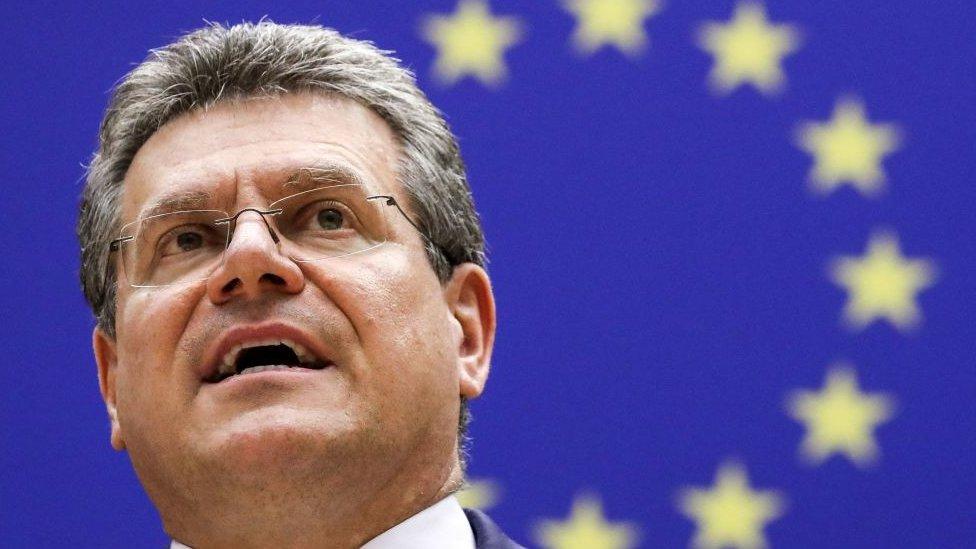Brexit: Political and business leaders react to EU proposals
- Published
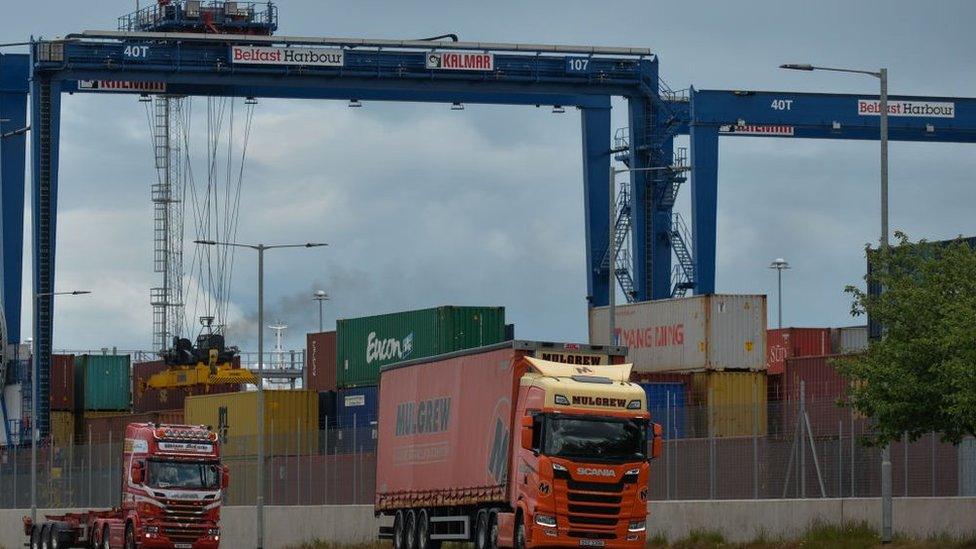
Political and business leaders in Northern Ireland, and further afield, have been giving their reaction to the EU's plan to reduce post-Brexit checks on goods arriving into Northern Ireland from the rest of the UK.
The proposals include scrapping checks on most food products being shipped to, and remaining in, Northern Ireland from Great Britain.
The EU has also said the plan will cut customs paperwork by 50%.
The new plan, which seeks to calm a long-running dispute over a key part of the Brexit agreement, would remove about 80% of spot checks, the EU said.
Sinn Féin
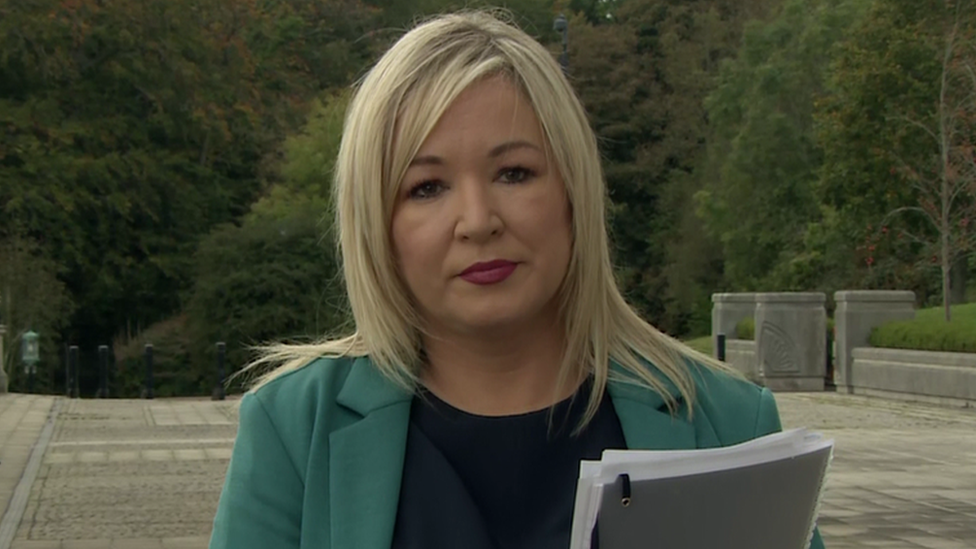
Michelle O'Neill said the EU are living up to commitments made to business and political leaders
Deputy First Minister Michelle O'Neill said the proposals were "a good mark of progress".
The party is seeking to recall the Northern Ireland Assembly to demonstrate support for the Northern Ireland Protocol.
Ms O'Neill said the publication demonstrates "both in word and deed" that the EU are living up to commitments made to business and political leaders.
However, Ms O'Neill said it is now "up to others whether or not they engage with this process".
"The British government and the DUP have dishonestly promoted a false narrative that the protocol does not enjoy the support or consent of the people of the north. That is untrue.
"The reality is that Brexit does not command the support or consent of the assembly," she said.
Democratic Unionist Party
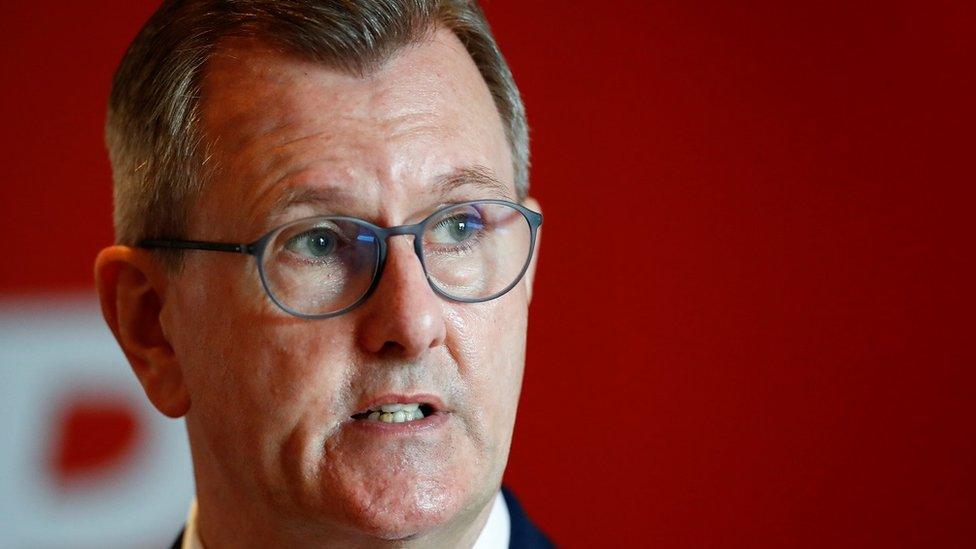
Jeffrey Donaldson said the DUP will "take time to study the detail of the papers produced"
The proposals are a "starting point", but appear to fall "far short of the fundamental change needed", Democratic Unionist Party (DUP) leader Jeffrey Donaldson has said.
Mr Donaldson said the party will "take time to study the detail of the papers produced".
However, he said there was "no escaping the reality that the Northern Ireland Protocol has harmed Northern Ireland, both in economic and constitutional terms".
"The imposition of the protocol has harmed the balances created by the Belfast Agreement and subsequent agreements and were the situation to remain unaltered would undo the political progress of the last 20 years," he said.
Social Democratic and Labour Party
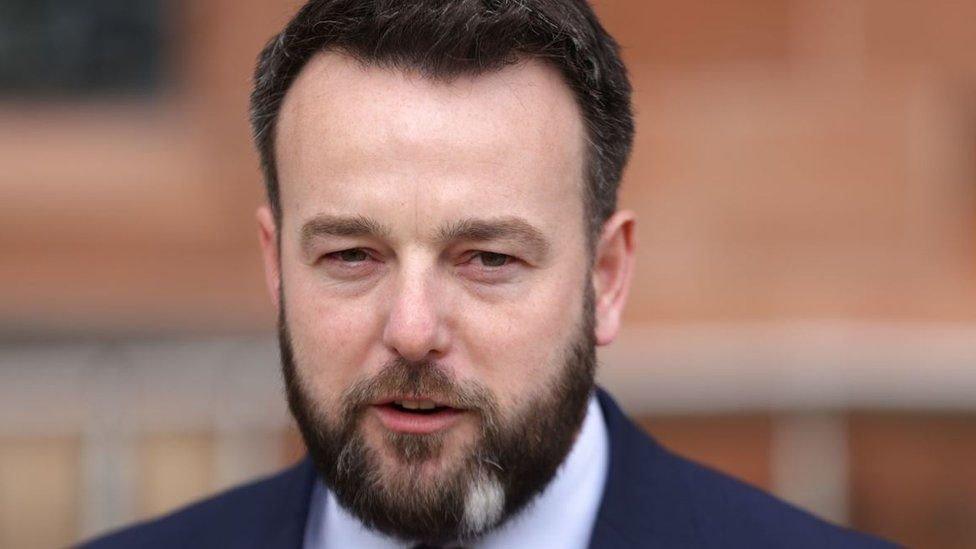
Colum Eastwood said the proposals present "a clear landing zone" to address challenges around the NI Protocol
SDLP leader Colum Eastwood has urged political leaders to embrace the new proposals.
The Foyle MP said the measures "go further than expected" and demonstrate that EU leaders are "stretching themselves in the interests of people and businesses in Northern Ireland".
He said political leaders, particularly those of unionist parties, should "reflect on the very serious efforts made by the European Commission" in easing challenges to trade and "addressing their concerns about democratic deficits".
"The DUP, in particular, need to decide if they're on the side of people and businesses here or in the pocket of Boris Johnson," he said.
"There is now a clear landing zone that will address the protocol challenges, allow us to maximise the opportunities and most importantly, expend political energy dealing with the crisis in our health service, our crumbling schools estate and managing the pandemic.
"We need to grasp that opportunity."
Alliance Party
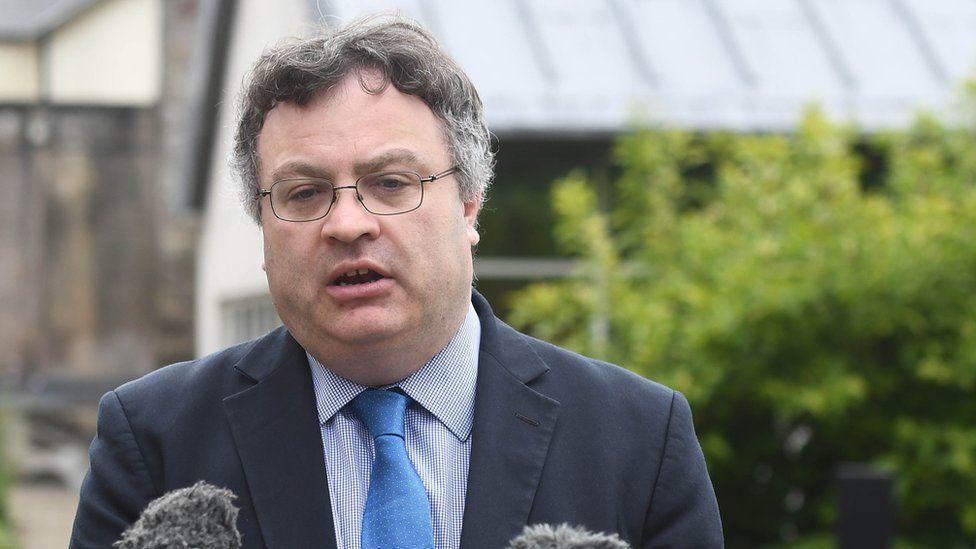
Stephen Farry said he hoped the proposals could form the basis for an agreement between the UK and EU
It would be an "act of folly" for opponents of the NI Protocol to "squander the opportunity to provide certainty and stability given by the EU's proposals", Alliance deputy leader Stephen Farry MP has said.
Dr Farry said he hoped the EU's proposals could form the basis for an agreement between the UK and EU which "addresses practical issues around the protocol in a pragmatic way".
"The challenges facing Northern Ireland come from Brexit," he said, adding that the protocol is "the symptom of the problem, not the cause".
"It would be an act of supreme folly to squander this chance to move on and indeed to impose even more delusional red-lines," he said.
Ulster Unionist Party
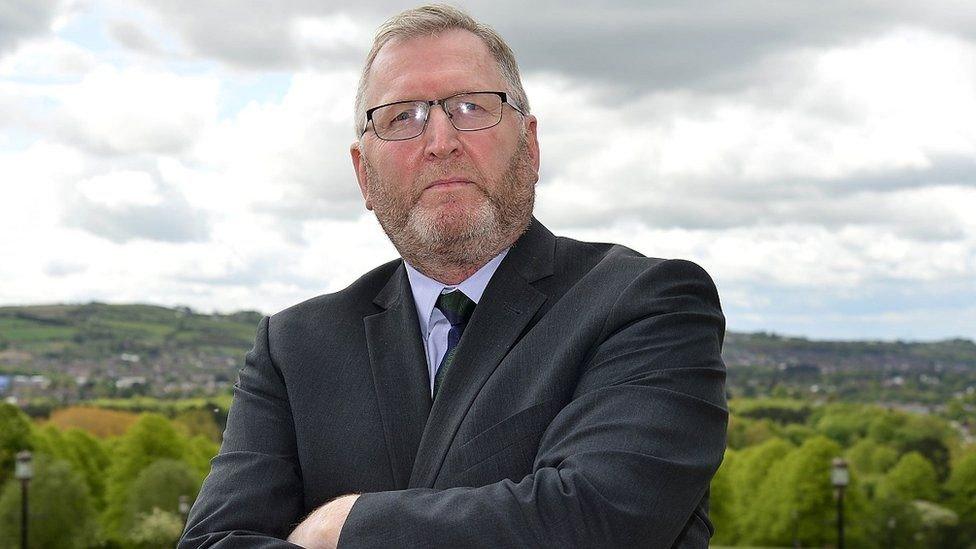
Doug Beattie said he was "genuinely disappointed" by what he heard from Maros Šefčovič
It is "a step forward but there remains a long way to go", according to UUP leader Doug Beattie.
"We were told the protocol negotiations could not be reopened, but we have now proven otherwise. This has been achieved through negotiation, not threats; through engagement not disengagement.
"The fact that the EU recognises that the protocol isn't working and needs substantial change is a positive development.
"However, I am genuinely disappointed by what I heard from European Commission Vice-President Maros Šefčovič and the supporting non-papers.
"Expectations were raised, but the proposals do not match them."
Traditional Unionist Voice
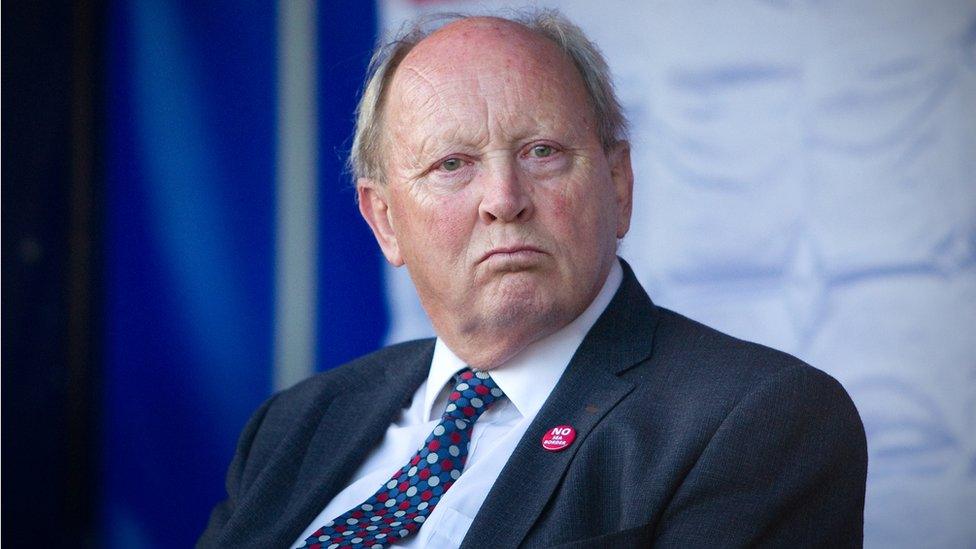
Jim Allister said the proposals "can never be acceptable"
The EU's latest proposals "utterly fail the sovereignty test", TUV leader Jim Allister has said.
Mr Allister described the protocol as "an instrument delivering both economic dislocation and constitutional dislocation within the UK".
He said the proposals "retain us in a foreign single market for goods, under a foreign customs code and VAT regime, ruled by foreign laws and adjudicated upon by a foreign court."
"GB would continue to be decreed a 'third country' vis-a-vis Northern Ireland's trade," he said, adding that this "can never be acceptable".
The Confederation of British Industry
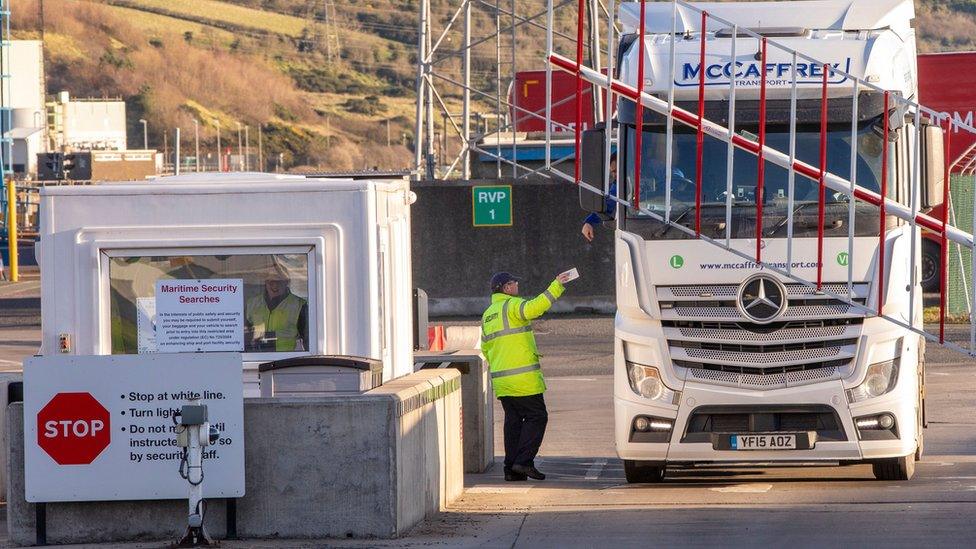
The CBI said it is now time for both sides to find a long-term solution that protects NI-GB trade
The Confederation of British Industry (CBI) said both the UK and EU had listened to businesses and are aware of the technical solutions needed to protect trade between Northern Ireland and Great Britain.
"Both sides must now grasp this opportunity to get back round the table - and agree sustainable long-term solutions that work for businesses and communities in Northern Ireland," CBI Europe Director Sean McGuire said.
Northern Ireland Retail Consortium

The NIRC said the proposals must provide "stability, certainty, simplicity and affordability"
The Northern Ireland Retail Consortium (NIRC) has welcomed "signs of movement from both sides".
However, a spokesperson said if the proposals are to work they must provide "stability, certainty, simplicity and affordability" to Northern Ireland's business community.
They said the NIRC will "reserve judgement" on whether these requirements have been met "until both legal and technical texts have been seen".
"As an umbrella group for business, we will have meetings with both the UK Government and the European Commission to discuss these proposals in full and we look forward to understanding how they would keep NI business competitive and ensure choice and affordability for consumers," the spokesperson added.
Federation of Small Businesses NI

NI businesses would like to see new trade arrangements in place by the end of the year, the FSB says
The FSB in NI's Roger Pollen said there is now an onus on both sides to negotiate a new trade solution relatively quickly.
"In terms of the timescale as to when we need to get this sorted, yesterday would have been very nice," he said
Mr Pollen said under current arrangements many businesses in Northern Ireland are faced with "vast amounts of bureaucracy" when bringing goods across from GB.
Should new arrangements be agreed by the UK and EU before Christmas, "businesses would heave a fairly big sigh of relief".
Logistics UK
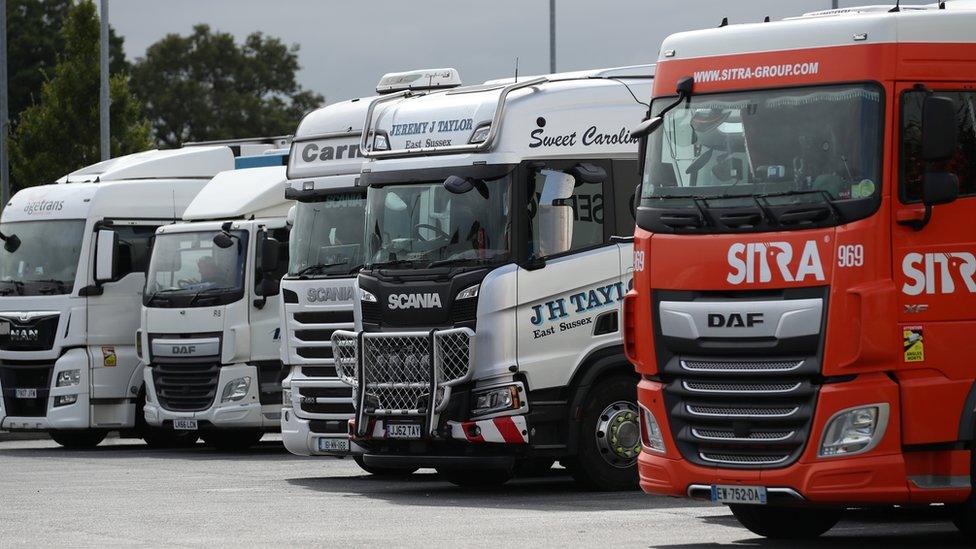
Logistics UK have 18,000 members across the UK
Seamus Leheny, a representative of trade body Logistics UK, said companies across the UK are not concerned about the European Court of Justice's (ECJ) role in the Northern Ireland Protocol.
The UK Government has demanded that the ECJ is removed from its role in the protocol as the arbitrator of trade disputes.
But Logistics UK policy manager Mr Leheny told BBC News: "We have got 18,000 members across the UK and we haven't had any representation from any member regarding the ECJ.
"What people want is solutions to the protocol, they want the protocol to work and that is what we are interested in."
He added: "What people are looking for, we are in solution mode here, and the logistics industry, we are solution seekers. We want to get these fixes that the EU have proposed.
"We need to see the legal text obviously to make sure the safeguards are there but people just want to build on this because they see the best way for peace in Northern Ireland is improve people's prospects and livelihoods. That's when I speak to businesses, that's what they want."
European Commissioner Mairead McGuinness
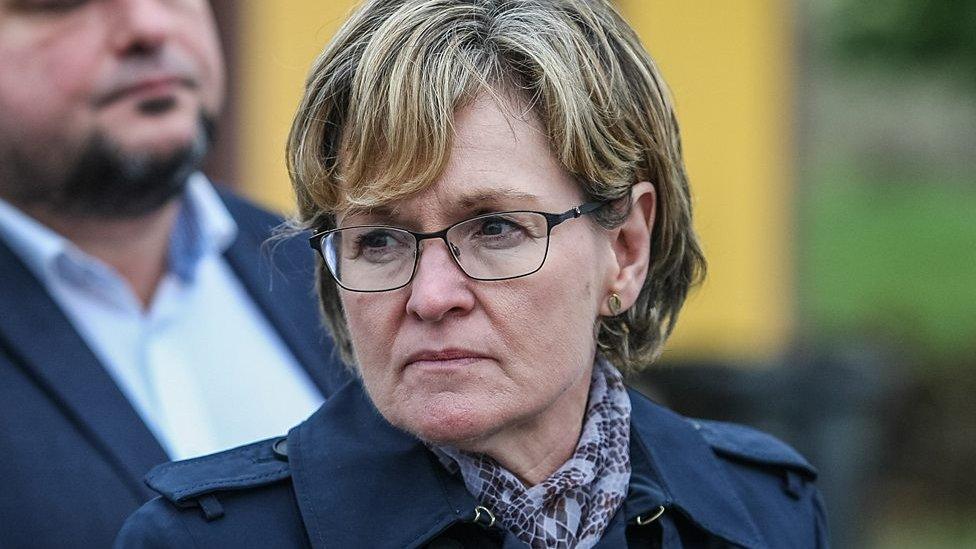
Mairead McGuinness said a deal before Christmas would be "very desirable"
European Commissioner and former MEP Mairead McGuinness said the offer was a "significant step forward" by the EU and a "huge opportunity" for people in Northern Ireland.
"Of course there will be difficult issues and there will be a lot of debate and commentary around this," she told the BBC.
"However, I do believe that the idea of getting this resolved by Christmas is attainable and it would be very desirable."
Labour Party
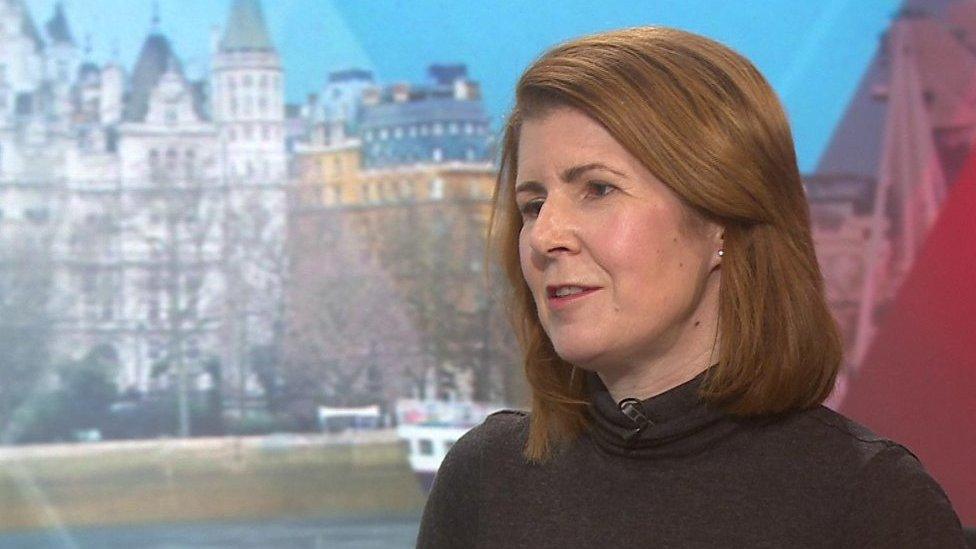
Baroness Chapman said Labour would not get rid of the NI Protocol
The Shadow Minister for Task Force Europe Baroness Jenny Chapman said that "today could be a day where we take a step forward" in the process to achieve stability to people in NI and across the UK.
Speaking to the BBC, Baroness Chapman said the Labour Party would not get rid of the protocol entirely, but would instead look at the proposals "in good faith" and talk to businesses, leaders and elected politicians in Northern Ireland to see if they were sufficient.
"What isn't the right way is to be antagonistic and pick a fight," she added.
- Published13 October 2021
